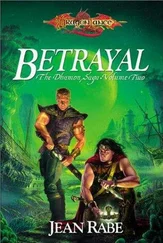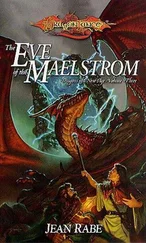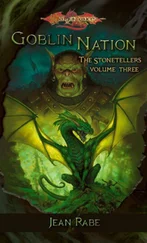“No, I think not. I played for a great prize and the risks were great. I have lost. But in a sense you have lost also, lieutenant, for we will die together tomorrow afternoon.
D’Aran was smiling again as he said: “That will not be necessary, Gallast. For our part, we intend to live. That is why we struck against you today, instead of waiting. We want plenty of time to contact the High Command, so that the explosion can be postponed.”
“And how do you intend to contact the High Command?”
“By the fort wireless, of course. How else?”
Softly, so softly that the legionnaires had to strain to hear, Gallast said: “I destroyed the fort radio at two o’clock this morning…”
Professor Daak heard it.
He had followed Gallast to the end of the corridor. He had propped himself against the wall. Mouth slack; pince-nez at an acute angle, he followed the exchanges.
And his breathing, always noisy, reached an agonising volume as the conversation progressed. He epitomised the distilled essence of terror as he listened to the references to the radio.
He stumbled to Gallast. Reaching up, he clawed at his shoulders with flabby, sweaty hands. And he gasped: “Blundering cretin! I thought you were mad when you told me yesterday that you were going to destroy the wireless! But no one can tell Colonel Gallast anything! Oh no! Now see what you’ve done… we’re trapped on top of a hydrogen bomb! We can’t get away and we can’t stop it exploding, so…”
Gallast half turned and regarded Daak with unconcealed contempt.
“We’re not on top of it, as you put it. We’re twenty-five miles off.”
“Twenty-five miles! It might as well be twenty-five inches! Do you know what will happen to us when that is detonated? Do you! I’ll tell you! We’ll dissolve! All that will be left of us will be a few pools of gristle and dried blubber. We…”
Gallast detached the clawing hands. Then he pushed Daak on the chest. It was not a violent push. But it was enough to knock the professor off balance.
Daak spun back against the wall. He stood there— staring at nothing. Then he fell on his face and was still.
Gallast bent down and felt under the moist shirt. There was a heartbeat—but a weak and irregular one. It did not matter. Daak was of no use now.
His men were gathered in a scared huddle a few yards away. They had moved up to hear what D’Aran said. They had heard more than enough.
Gallast jerked a thumb at them, then at Daak.
“One of you put the professor on his bunk,” he ordered.
No one moved.
“Did you hear what I said? Put the…”
A man whose clothing was dripping with water interrupted. This man had had the unpleasant task of groping at the bottom of the tank while Gallast held his ankles.
He said: “Put him there yourself, comrade colonel.”
Gallast regarded him steadily, with a form of detached interest. The rebel lowered his eyes. He was looking at the floor as he added sullenly: “We’re taking no more orders from you… no more orders from anyone.”
“And why won’t you take orders from me?”
“Because you’re an assassin. The professor has told us all we need to know. If it hadn’t been for you, we could have sent a radio signal and got…”
The bullet from Gallast’s Luger pierced the bridge of the man’s nose and emerged at the top of his skull. He bore an expression of indignant astonishment as he died.
It was the unexpectedness of the killing rather than the killing itself which reduced the remaining six men to temporary impotence. But it was only temporary. After staring dumbly at Gallast, then at the body, they gave forth grunts of anger. Their hands strayed to their gun belts.
Gallast would not have survived another minute if D’Aran’s voice had not come through the door.
D’Aran said: “You’d better let me look at the wireless, Gallast.”
There was an easing of tension in the corridor.
After hesitating, Gallast pushed his gun in its holster and turned his back on his men.
“It’s smashed, I tell you. I destroyed the valves. It can’t be repaired.”
“There’s a spare set of valves in the drawer of my desk. They are at the back. You probably have not noticed them.”
Gallast raised a hand to his forehead. It shook. The others were shaking, too.
“Then it can be repaired!”
“Perhaps—if you have not destroyed any other components.”
“And we can contact your High Command… they’ll have the explosion delayed! Thank you, lieutenant, thank you! I will make the repairs myself. You and your men will stay where you are. If you try to come out, you will be shot down.”
D’Aran’s voice remained suave.
“No, Gallast, I will attend to the wireless. And I will send the signal. No help can reach us for at least twenty-four hours—and we have the water. Unless you want to die of thirst, you must do as I say.”
Gallast understood. He thought for a few moments. Then: “I will make a bargain with you lieutenant—you allow us half of your water and we will leave the fort immediately. We will not attempt to harm you.”
D’Aran laughed.
“You’re in no position to do any bargaining, Gallast. And that offer does not appeal to me at all. Non … you will resign yourself to the fact that I am again in command here. You are my prisoners. I am coming out of this room. But my men will remain inside. So long as you behave yourselves, my legionnaires will pass out to you at regular intervals just enough water to keep you alive. If there is any violence, the supply will stop. And if you attempt to attack us, the pitchers will be emptied on the floor. And if that happens, we may survive until help comes, for we have drunk our fill. But you are already thirsty, aren’t you. It will be agony in a few hours. Do I make myself clear?”
Gallast’s men had gathered round him, ignoring the swooning Professor Daak. They were again fingering their pistols. And the menace was directed at their leader.
One of them said: “Let him repair the wireless…”
It started a chorus.
“We’re beaten…”
“We need water…”
“I’d rather rot in a French prison than die of thirst…”
“Or be melted down by the bomb…”
Gallast felt a new surge of fury. This time it was entirely directed at his men—his handpicked shock troops. Men selected for their loyalty as well as their fighting abilities. In the moments of dire emergency they had broken. They were useless.
But he disguised his emotion.
“Come out, lieutenant,” he called. “We’ll do exactly as you say.”
* * *
D’Aran said to the legionnaires: “Keep the water well away from the door. Pass them a cupful every two hours—no more.”
One of them asked: “Shall we shut the door after you’ve gone?”
“ Non , it won’t be necessary. They won’t dare to attempt any tricks while we hold the water. But none of them must be allowed in here. That understood?”
They nodded. But Keith was looking worried.
Keith said: “I don’t like the idea of you going out there alone. Perhaps you’d better have company, mon officier .”
D’Aran put a hand on Keith’s shoulder.
“I’ll be quite safe, legionnaire. I will have a message transmitted within half an hour—if only the valves have been damaged. After that—we can only wait. And we may have to wait for quite a time, for the first task of the High Command will be to contact the scientists who are to detonate the bomb. They are some fifty miles south of Sanna in a remote area. It may be difficult.”
The legionnaires looked anxious. A Latvian said:
Читать дальше












